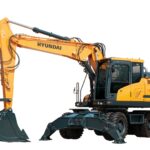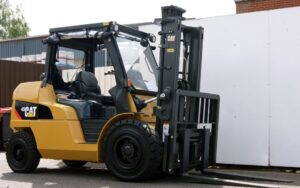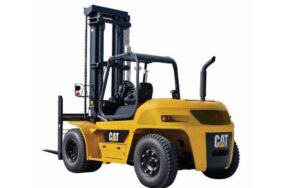
When it comes to material handling in Dubai’s fast-paced warehouse industry, choosing the right forklift can significantly impact efficiency, costs, and environmental footprint. Two of the most common options available are electric forklift and diesel forklifts. Both have distinct advantages and limitations, making the decision dependent on factors such as operational needs, budget, and sustainability goals.

Electric Forklifts: Pros and Cons
Advantages of Electric Forklifts
- Eco-Friendly Operations
Electric forklifts produce zero emissions, making them ideal for indoor use in warehouses where air quality is a concern. This also helps businesses comply with Dubai’s sustainability initiatives. - Lower Operating Costs
Electricity is generally cheaper than diesel fuel, and electric forklifts require less maintenance due to fewer moving parts. There’s no need for oil changes or exhaust system maintenance, reducing long-term expenses. - Quiet and Smooth Performance
Noise pollution is a concern in busy warehouse environments. Electric forklifts operate with minimal noise, creating a more comfortable working atmosphere for employees. - Compact Design and Maneuverability
Electric forklifts are typically smaller and more maneuverable, making them ideal for tight warehouse spaces with narrow aisles.
Disadvantages of Electric Forklifts
- Higher Initial Cost
While they save on fuel and maintenance in the long run, electric forklifts have a higher upfront purchase cost. - Battery Charging Time
Charging an electric forklift takes several hours, which can lead to downtime if not properly managed. Businesses may need to invest in extra batteries or fast-charging stations. - Limited Outdoor Use
Electric forklifts are not well-suited for outdoor operations, especially in extreme weather conditions or rough terrains.
Diesel Forklifts: Pros and Cons
Advantages of Diesel Forklifts
- Powerful Performance
Diesel forklifts are stronger and can handle heavier loads, making them ideal for lifting bulky materials and operating on rough surfaces. - Longer Run Time
Unlike electric forklifts that require hours to recharge, diesel forklifts can run for longer periods without interruption, making them ideal for high-demand operations. - Lower Initial Cost
Diesel forklifts generally have a lower purchase price compared to electric models, making them a more affordable option for businesses with budget constraints. - Better for Outdoor Use
If your warehouse operations extend outdoors, diesel forklifts are more suitable as they can handle extreme temperatures and uneven terrain with ease.
Disadvantages of Diesel Forklifts
- Higher Fuel and Maintenance Costs
Diesel prices fluctuate, and regular maintenance such as oil changes, filter replacements, and exhaust system upkeep adds to the operational cost. - Environmental Impact
Diesel forklifts produce emissions that contribute to air pollution, making them less desirable for indoor use in enclosed spaces. - Louder Noise Levels
Diesel engines are significantly louder than electric motors, which can contribute to a noisy and disruptive work environment.
Which Forklift is Best for Your Dubai Warehouse?
- If your warehouse operations are primarily indoor, require low emissions, and prioritize long-term savings, electric forklifts are the better option.
- If your operations require lifting heavy loads, working outdoors, and having continuous run-time, a diesel forklift is the better choice.

Conclusion
Choosing between electric forklifts and diesel forklifts depends on your warehouse’s specific needs, budget, and environmental considerations. For businesses in Dubai looking for reliable forklift rental and material handling solutions, White Field General Transporting offers a wide range of high-performance forklifts to enhance warehouse efficiency. Whether you need electric models for indoor use or powerful diesel forklifts for heavy-duty operations, White Field General Transporting ensures top-quality service and expert support for your logistics needs.






No comment yet, add your voice below!